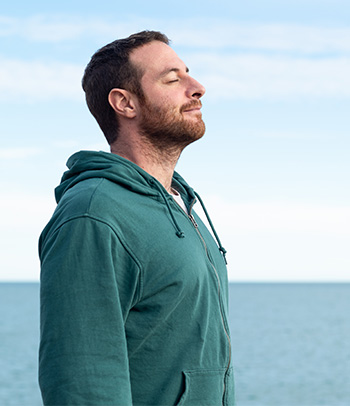Quitting smoking is one of the most important steps you can take to improve your health. No matter how old you are, how long you have smoked or why you started, there are proven treatments available to help you quit. Whether it’s to lower your chance of getting lung cancer or heart disease, to look and feel younger, to save money or to protect your loved ones from secondhand smoke, make a plan to quit tobacco use today.

According to the Department of Veterans Affairs (VA), seven out of every 10 Veterans who smoke would like to quit for both the physical and mental health benefits, but nicotine addiction can make quitting very hard. However, with the right treatment plan in place, you can be successful.
What Are The Dangers of Smoking?
No matter what reason you had for starting to smoke, there are many more reasons to quit:
- The World Health Organization (WHO) states that nearly half of all tobacco users are eventually killed by it.
- Every year more than eight million people die from tobacco use.
- Tobacco is a major risk factor for cardiovascular and respiratory diseases.
- Smoking increases your risk for many types of cancer, including lung, pancreatic, kidney, stomach, bladder, throat and mouth cancer.
- Smoking hinders the effectiveness of medications you may take for depression, anxiety and psychotic disorders.
- Smoking can lead to difficulties getting pregnant and can increase your risk for erectile dysfunction.
By receiving professional support and using proven cessation medications, you can more than double your chances of quitting successfully.
Your health isn’t the only thing that’s affected by smoking. Tobacco can be deadly for nonsmokers too. Secondhand smoke causes 1.2 million deaths every year and 65,000 children die each year due to illnesses related to secondhand smoke. Secondhand smoke can affect lung development and make asthma worse in infants and children.
What Are The Benefits of Quitting?
Benefits of quitting are immediate and long-lasting:
- Within 20 minutes, your heart rate and blood pressure drop.
- In 12 hours, the carbon monoxide level in your blood drops to normal.
- In as little as two weeks, your circulation improves, and your lung function increases.
- In the first nine months, coughing and shortness of breath decrease.
- Within a year, your risk of coronary heart disease is about half that of a smoker. In five years, your stroke risk is reduced to that of a nonsmoker.
- In 10 years, your risk of lung cancer falls to about half that of a smoker and other cancer rates decrease as well.
- Quitting also reduces a woman’s risk of miscarriage, the difficulty in getting pregnant, having a premature birth or giving birth to a baby with low birth weight.
Visit the WHO’s Health Benefits for Smoking Cessation article for even more details on the benefits of quitting.

How Can I Break My Addiction?
Nicotine is highly addictive and can make quitting very challenging. Without support, only 4% of attempts to quit tobacco succeed. By receiving professional support and using proven cessation medications, you can more than double your chances of quitting successfully. Here are some great resources to help:
- The WHO offers a digital health worker named Sarah who has been programmed with the latest information on cessation methods and can help you make a plan.
- The WHO also offers a quitting toolkit and provides tips, reasons to quit, information on medications, toll-free quitlines and much more.
In addition, VA’s Tobacco and Health page offers several Veteran-specific resources. VA research is clear: you have your best chance at quitting tobacco when you get behavioral counseling and use cessation medication.
- Medications include nicotine replacement therapy, which includes different options to help you manage nicotine withdrawal symptoms and cope with the urge to smoke.
- Counseling by the VA is offered in person, over the phone or via video and can be done individually or within a group. Counseling provides you with the chance to talk to a health care provider or counselor about your addiction, what role it plays in your life and how to cope with triggers.
- VA’s free telephone quitline, Quit VET is staffed by trained counselors and offers tobacco cessation counseling to any Veteran who receives health care through VA. Call to make a quit plan, get individual counseling or develop strategies for preventing relapse.
- SmokefreeVET is a text message program that provides daily advice and support to Veterans.
- Stay Quit Coach is a mobile app that helps you develop a customized plan, provides information and motivational messages, and offers interactive tools to help you stay smoke-free.
Quitting tobacco isn’t easy, but with the right support and tools, you can create a plan that works for you!







